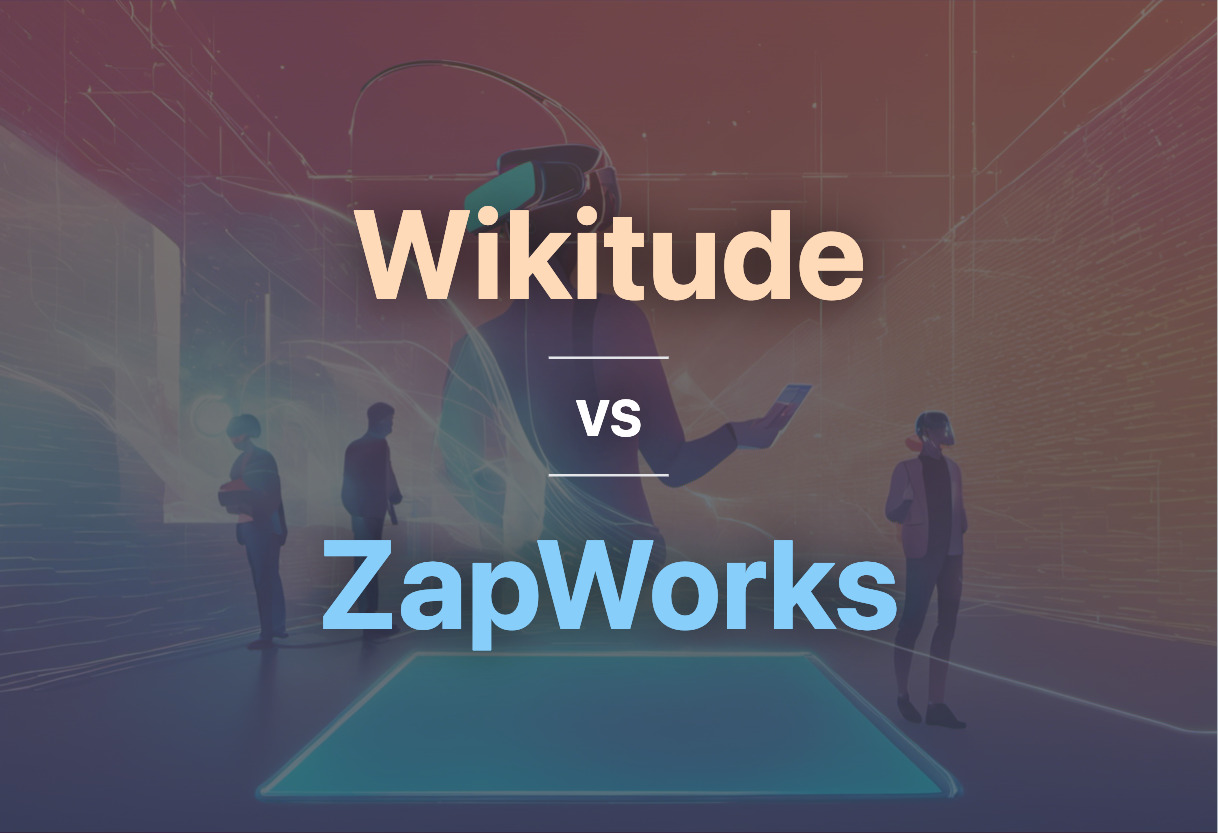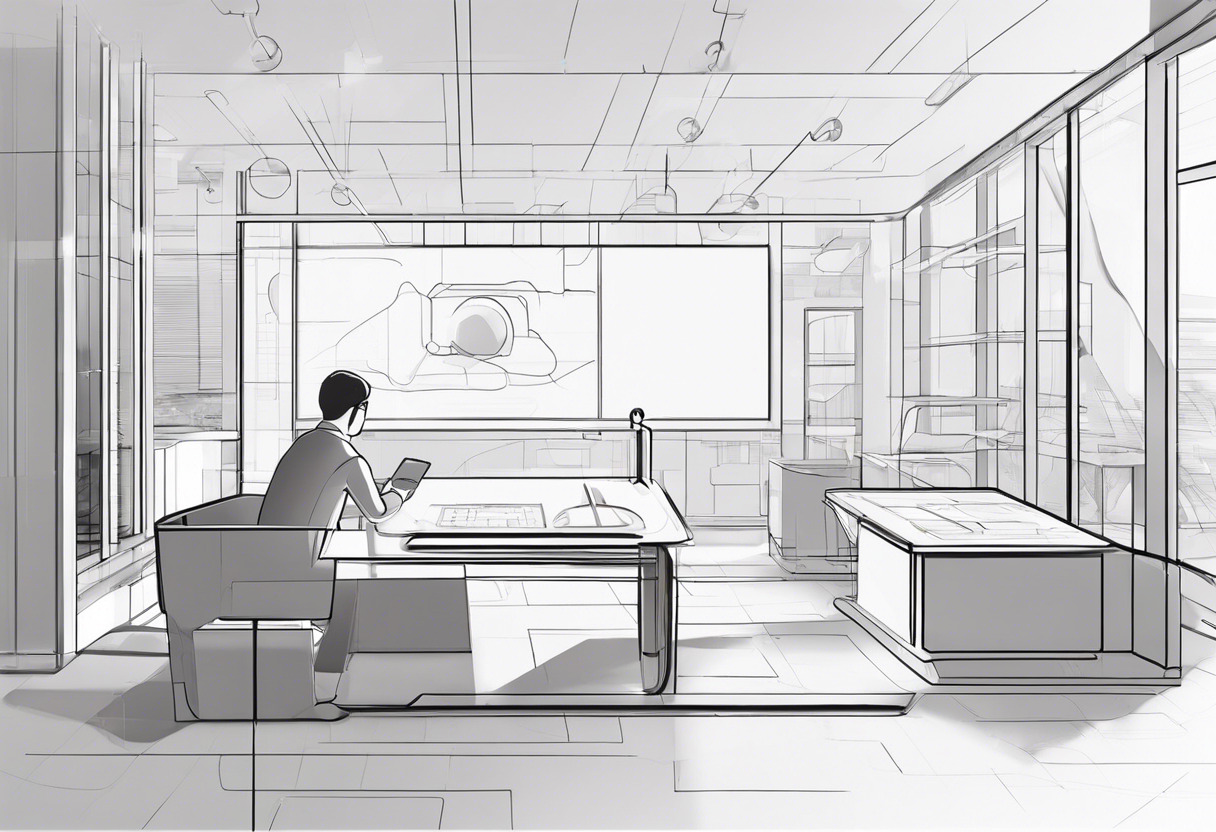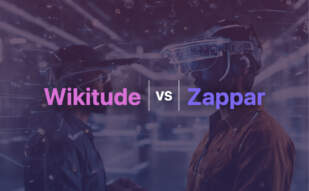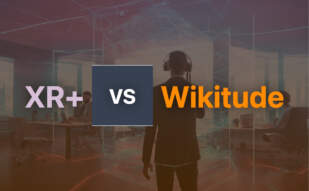ZapWorks excels with a user-friendly approach, offering no-code options and efficient object tracking, ideal for AR novices or marketers. However, for developers seeking advanced features, Wikitude, with its Expert SDK, offers high-end image and multiple object tracking and supports simultaneous tracker usage, making it a robust choice for high-performing AR solutions.

Key Differences Between Wikitude and ZapWorks
- Wikitude’s SDK is a comprehensive tool, offering high-end image tracking, cylinder tracking, multiple trackers, and AR Foundation support.
- ZapWorks is particularly user-friendly and offers a no-code option that favours marketers and beginners.
- Wikitude supports tracking of objects in complex and challenging environments whereas ZapWorks is criticized for its limitations in world and cylindrical tracking for WebAR.
- Wikitude’s platform is tested and approved by over 20 AR-specializing agencies, emphasizing its credibility in the AR field.
- ZapWorks offers AR-creation tools with varying degrees of complexity, from drag & drop to custom code options, catering to different levels of expertise.
- Wikitude was awarded the Best Developer Tool at the Augmented World Expo in 2017, showcasing its reputation among professional users.
| Comparison | Wikitude | ZapWorks |
|---|---|---|
| Core Technology | AR SDK | AR ecosystem, creative suite, designer, studio, AR SDKs |
| Platform Compatibility | Android, iOS, Windows OS | WebAR |
| Key Features | Image recognition & tracking, 3D model rendering, video overlay, location-based AR, SLAM | World tracking, Image tracking, Face tracking, Ease of use |
| External AR Framework Compatibility | ARKit, ARCore, Standalone | ARKit, ARCore, WebAR |
| Industry Recognition | 2017 Best Developer Tool at Augmented World Expo | Used widely for creating engaging AR content |
| Usage Flexibility | High-performing AR solutions, Can be used with external native AR frameworks | No-code, low-code, and custom code options |
| Target Audience | Unity experts, AR-specializing agencies | Designers, Developers, Marketers |
| Special Product Editions | SDK 9.0 Expert Edition | ZapWorks Studio 6 |
What Is Wikitude and Who’s It For?
Wikitude, an innovative venture from Salzburg, Austria, emerged in 2008, specializing in location-based augmented reality (AR) experiences delivered via its World Browser App. In 2012, Wikitude transformed the realm of AR by introducing a Software Development Kit (SDK) for image recognition, tracking, and geolocation – an advancement that laid the groundwork for 3D model rendering, video overlay, location-based AR, and SLAM (Simultaneous Localization And Mapping). Today, Wikitude caters to a broad audience – from Android, iOS, and Windows OS users to advanced developers, offering sophisticated SDK versions optimized for smart eyewear devices.

Pros of Wikitude
- Comprehensive SDK for image recognition and tracking
- SLAM technology for markerless instant tracking
- High level of compatibility (Android, iOS, Windows OS)
- Specialized for smart eyewear devices
- Advanced AR features for Unity experts with SDK 9.0
Cons of Wikitude
- Dependence on user’s position and motion sensors may affect AR experience
- Debates on the authenticity of location-based AR due to sensor accuracy
What Is ZapWorks and Who’s It For?
ZapWorks is an all-in-one AR ecosystem empowering designers, developers, and marketers to produce unique WebAR experiences. This versatile platform provides a creative suite, AR SDKs, and options for no-code, low-code, or custom code WebAR creation. With its cutting-edge applications like Zapworks Designer and Studio, it allows users to create AR content with ease. Whether you’re working on product visualization, digital content overlays, or feature-rich facial animations, ZapWorks serves as the go-to tool.

Pros of ZapWorks
- Comprehensive tools for WebAR creation
- No-code, low-code, or custom code options
- Rich facial tracking features
- Cloud-based AR experience creation
- Freedom of AR customization
Cons of ZapWorks
- Some users find the user experience not ideal
- Limited features for WebAR (world tracking, cylindrical tracking)
- Critical reports of difficult usage
The Concluding Choice: Wikitude vs ZapWorks
After in-depth analysis, it is time to make an informed decision between Wikitude and ZapWorks. Let’s target specific audiences and see how these platforms fare for them.
Developers Eager For Advanced AR Capabilities
If being on the cutting-edge is your calling, Wikitude may have just the offerings for you. With features like high-end image tracking, simultaneous tracking of identical and different objects, and integration with ARKit and ARCore, it certainly caters to the more advanced developers and AR creators.

Beginner Developers and AR/VR Creators
For those just starting out or seeking a user-friendly interface, ZapWorks can serve as a better choice. It has a no-coding requirement and allows simple drag & drop tasks for creating AR experiences. Though criticized for limited features and difficult usage, it has enjoyed popularity due to its ease of use and efficient object tracking.

AR/VR Enthusiasts in The Education Sector
In the context of classroom learning and training programs,ZapWorks is well-positioned with its ease of use and AR customization. Meanwhile, Wikitude may also appeal, especially for more complex technical classroom applications.

Choosing between Wikitude and ZapWorks ultimately hinges on your requirements: for advanced capabilities and high performing AR solutions, Wikitude stands tall; for no-coding, user-friendly experiences, turn to ZapWorks.
Tiffany Brise
Content writer @ Aircada, patiently awaiting a consumer AR headset that doesn’t suck.





